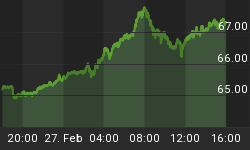The U.S. Securities and Exchange Commission (SEC) has decided not to advocate for action against the TurnKey Jet Inc. (TKJ) token sale, but included a few interesting requirements.
The SEC’s move, or lack thereof
In an April 2 statement from the commission, chief legal advisor Jonathan Ingram wrote to TurnKey Jet Inc.:
Based on the facts presented, the Division will not recommend enforcement action to the Commission if, in reliance on your opinion as counsel that the Tokens are not securities, TKJ offers and sells the Tokens without registration under the Securities Act and the Exchange Act. Capitalized terms have the same meanings as defined in your letter.”
Ingram, however, clarified that TurnKey Jet must adhere to several parameters going forward. The startup is not allowed to utilize capital raised via token sales to develop its “Platform, Network, or App, and each of these will be fully developed and operational at the time any Tokens are sold,” Ingram wrote.
Ingram noted the tokens must be ready for usage at the point of sale for their designed purpose and the startup must limit token transactions to TKJ wallets on its platform. He also specified token pricing of “one USD per Token throughout the life of the Program,” and the tokens will be used in exchange for the startup’s services, consistent with the asset’s dollar pegging. Related: The World Of Apple Just Got A Lot Bigger
Additionally, the SEC advisor included:
If TKJ offers to repurchase Tokens, it will only do so at a discount to the face value of the Tokens (one USD per Token) that the holder seeks to resell to TKJ, unless a court within the United States orders TKJ to liquidate the Tokens; and [t]he Token is marketed in a manner that emphasizes the functionality of the Token, and not the potential for the increase in the market value of the Token.”
These requirements appear to remove any speculatory nature that might otherwise have been associated with the asset mentioned.
The ICO game
The SEC has slammed the regulatory hammer on initial coin offerings (ICO) over the past several months, enforcing regulation on the space. In mid to late 2017, many projects began banning U.S. participants, likely due to such regulatory complications in the U.S.
Many of such ICOs achieved meteoric rises in price, likely due to speculation. These startups often raised incredible amounts of funds, even without products. In May of 2018, CNBC reported on EOS, which raised around $4 billion even before its scheduled full product launch in June of 2018.
A large number of projects even turned out to be scams. CoinTelegraph reported on a study from Stratis Group which found that over 80% of 2017’s ICOs turned out to be in the scam category. Although, with all the rules and regulations present, investment-style token sales now often only allow accredited investor participation.
The situation is tough for knowledgeable investors without the money for such accreditation. One cannot help but think there must be a solution which would allow regular citizens to invest freely while regulators enforced a few guidelines against pure scams.
By Benjamin Prius via Crypto Insider
















